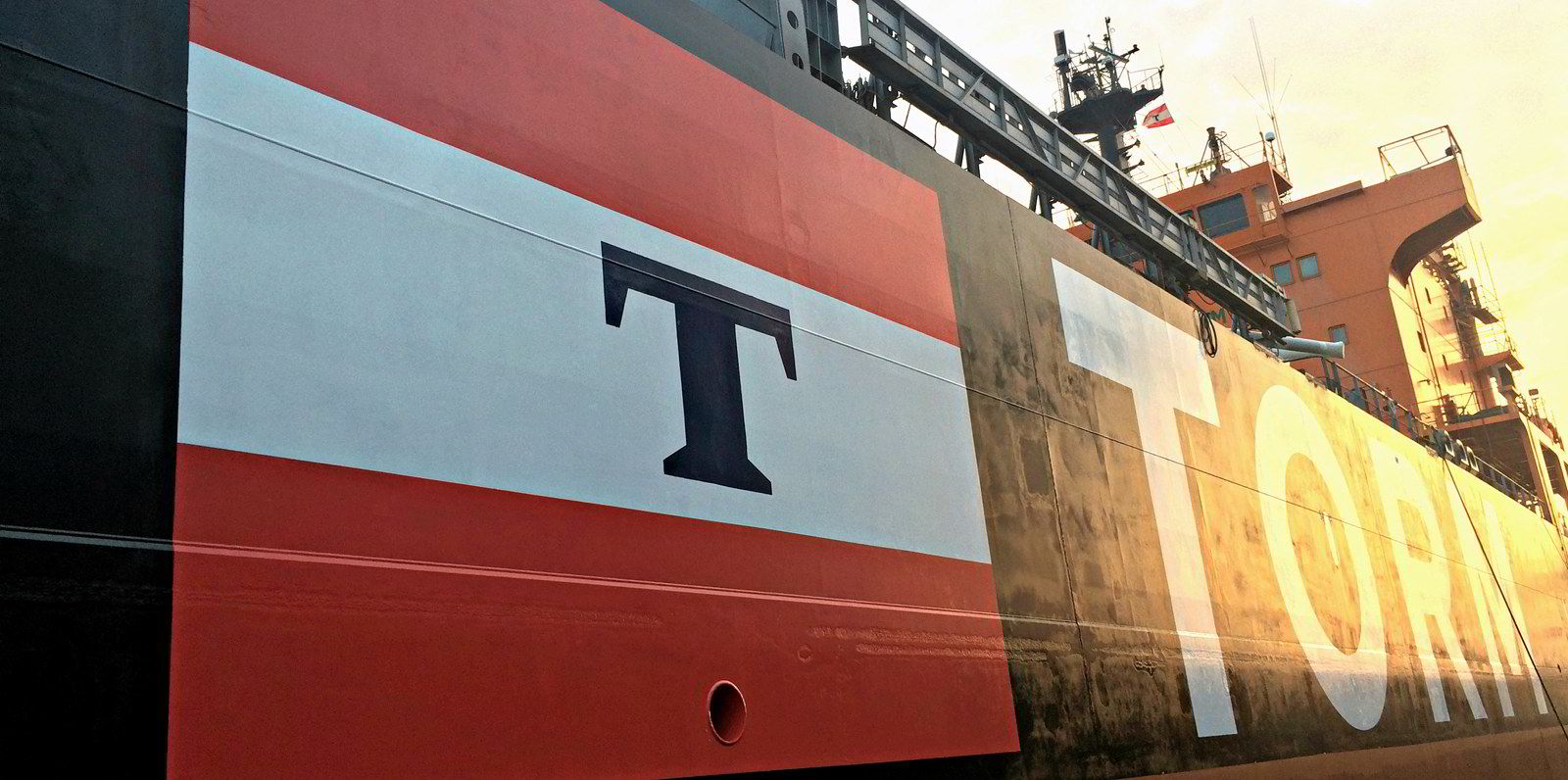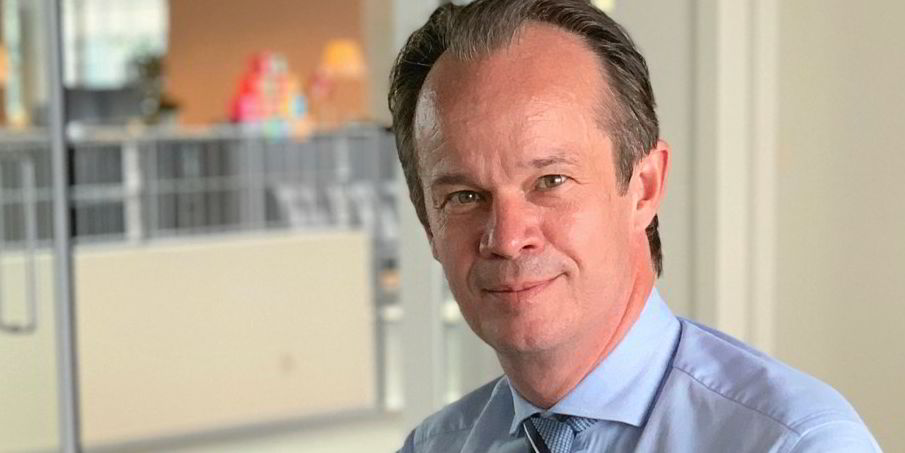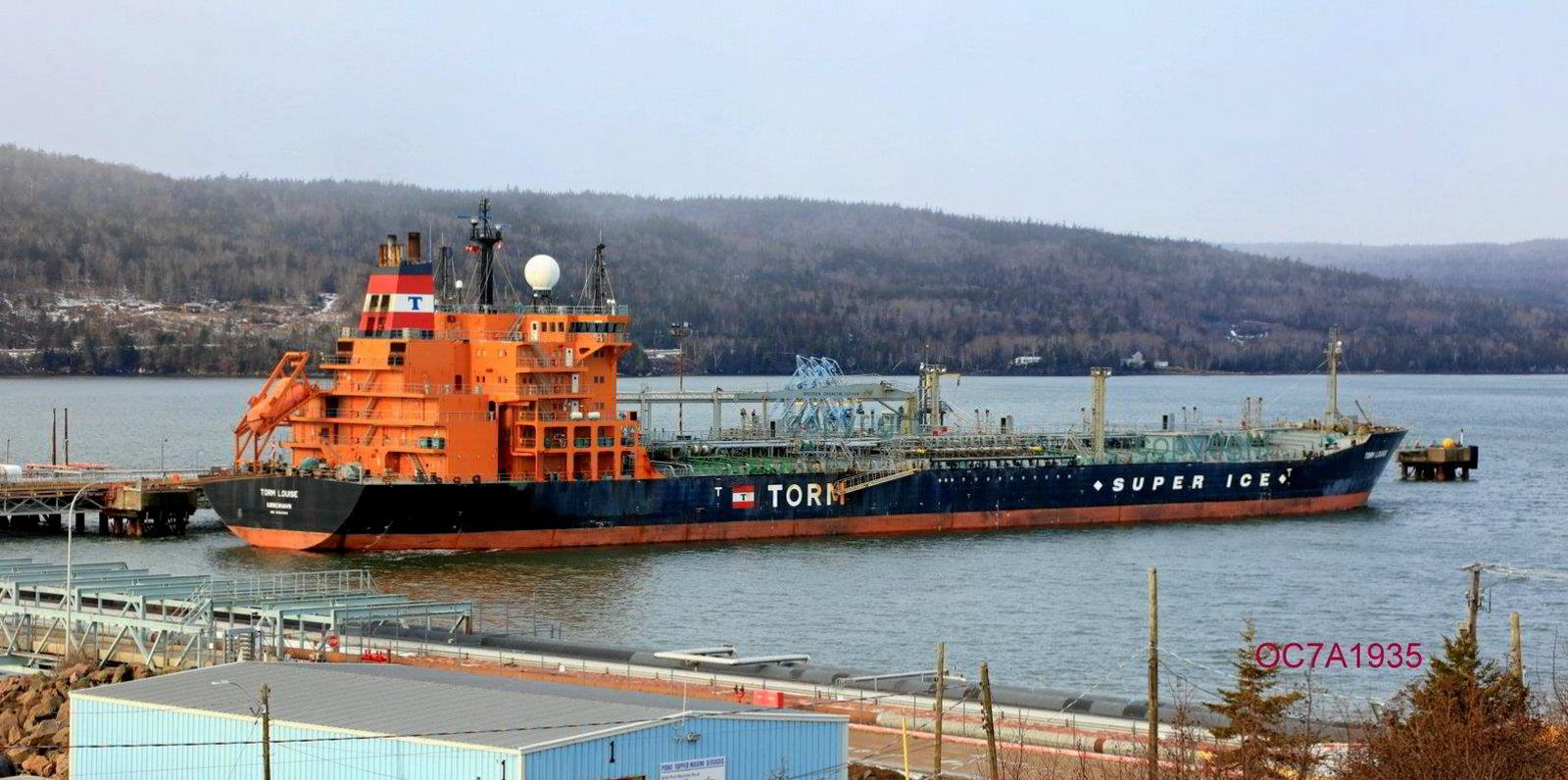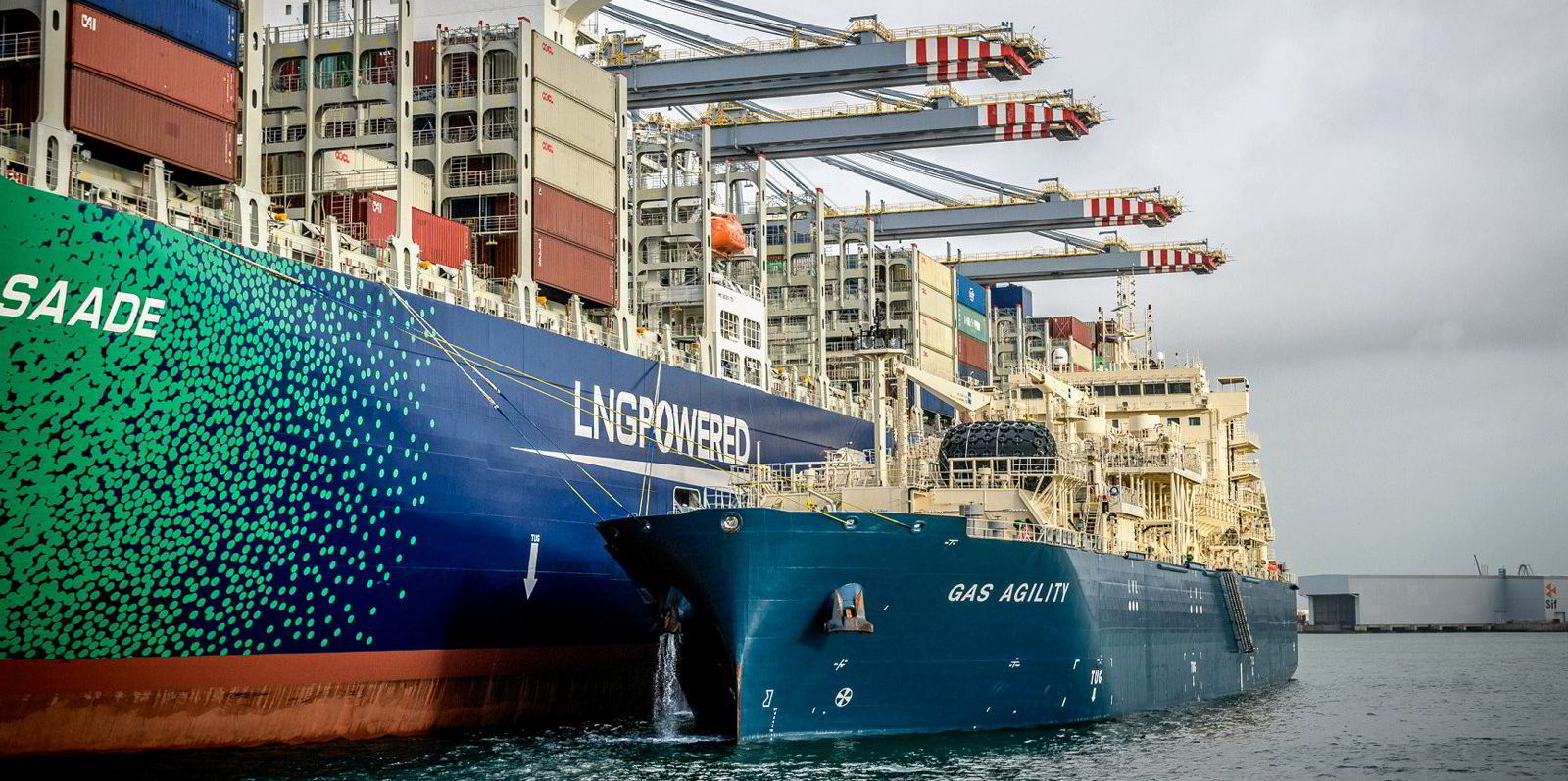Denmark-based Torm says it is on track to meet its environmental target for 2030 despite its fleet having a higher carbon intensity and emitting more greenhouse gas emissions last year.
In line with the International Maritime Organization’s decarbonisation target, the product tanker owner is aiming for a 40% reduction in its carbon intensity from 2008 levels by 2030.
Torm’s fleet emitted 5.24 grams of CO2 per dwt-nautical mile in 2020 based on the annual efficiency ratio methodology, a 22% decrease since 2008, the company said in its first annual environmental, social and corporate governance (ESG) report.
However, this is higher than the 5.13 grams per dwt-nautical mile that Torm's fleet emitted in 2019.
Total CO2 emissions — from direct and indirect sources — rose to 1.34m tonnes last year, up from 1.3m tonnes the year before.
The figures were released after Torm signed up for its first green loan facility last quarter.
Secured against eight vessels, the $150m facility provided by Danish Ship Finance is priced at a rate linked to the company's annual CO2 emissions until 2027.
Challenges ahead
Looking forward, the company plans to adopt operational and technical measures to meet the 2030 target.
“Optimisation and improvement of the existing fleet are paramount, and Torm applies a broad set of actions to enhance the fuel efficiency of its fleet,” the ESG report said.
“Torm is also engaged in developing the next generation ship design and new energy improving technologies with selected partners.”
The company is targeting to achieve zero emissions from its fleet by 2050, even more ambitious than the IMO’s aim in halving emissions by the mid-century point.
Torm chief executive Jacob Meldgaard said the greatest challenge on the path to decarbonisation lies in finding low, zero-carbon fuels.
“That's not a single-company task,” he told TradeWinds. “You need to get to [an] efficient volume of an alternative fuel, which is then feasible for the industry to take up.”
Scaling up
Several industries will need to coordinate with each other to build a supply chain for such zero-carbon fuels to scale up, Meldgaard added.
Torm is part of the Getting to Zero Coalition, working with major players like Shell and Cargill to develop commercially viable zero-emission vessels for the deepsea trade by 2030.
But Meldgaard admitted Torm does not plan to invest in ships powered by low, zero-carbon fuels in the coming quarters.
“I don't see there will be an alternative fuel decision to be made with the next few quarters,” he said. “There's not much more we can do on our side until there is availability of the future fuel.”






